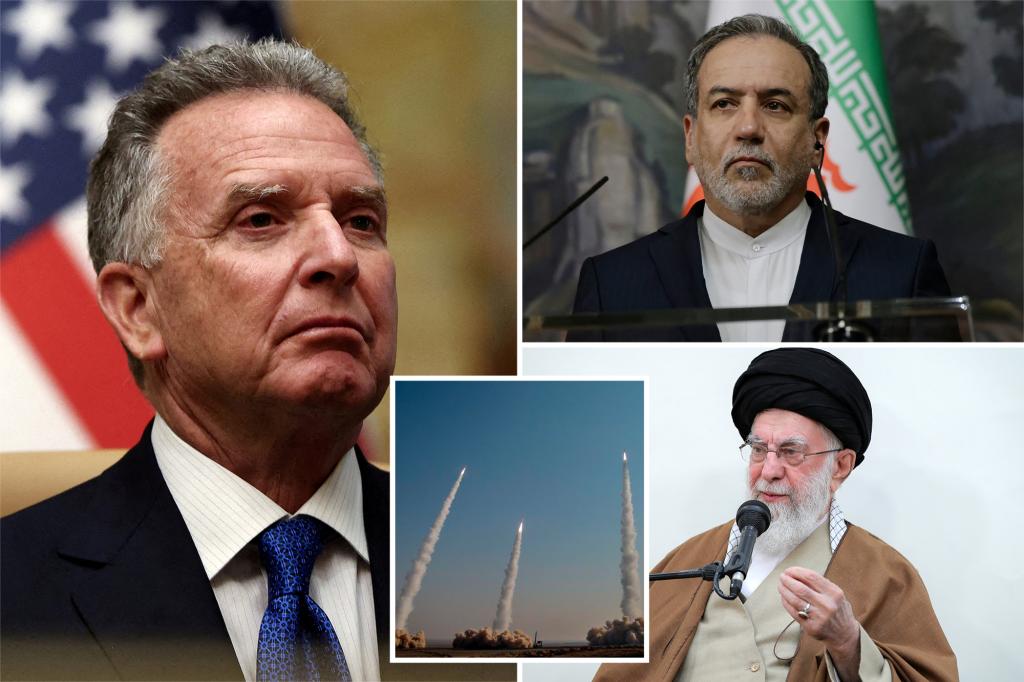Talks between the United States and Iran over Tehran’s nuclear program set for this weekend have been scrapped, according to the government of Oman, which has been mediating deliberations between the two sides.
A fourth round of discussion had been scheduled to take place in Rome on Saturday, but were postponed due to “logistical reasons,” Omani Foreign Minister Badr al-Busaidi revealed on X Thursday.
“New dates will be announced when mutually agreed,” added al-Busaidi, who did not elaborate on the “logistical reasons.
Iran’s foreign ministry claimed that the meeting was delayed “at the request of Oman’s foreign minister,” while an unidentified source claimed to the Associated Press that Washington “had never confirmed its participation” in Saturday’s planned talks but was expecting conversations to take place “in the near future.”
On Wednesday night, Defense Secretary Pete Hegseth issued an ominous threat against Iran over its ongoing backing of Yemen’s Houthi rebels, whose attacks on Red Sea shipping have drawn the attention of the US Navy.
“Message to IRAN: We see your LETHAL support to The Houthis. We know exactly what you are doing,” Hegseth proclaimed on X. “You know very well what the U.S. Military is capable of — and you were warned. You will pay the CONSEQUENCE at the time and place of our choosing.”
“The responsibility for the consequences and destructive effects of the contradictory behavior and provocative statements of American officials regarding Iran will lie with the American side,” Iran’s Foreign Ministry spokesperson Esmaeil Baghaei responded to Hegseth Thursday.
Two rounds of indirect talks between the US and Iran took place in Oman’s capital, Muscat, while the third was held at the sultanate’s embassy in Rome.
The US hopes to convince Iran to give up its nuclear program, which Washington believes to be geared toward creating an atomic weapon, in exchange for a rollback of sanctions against the theocratic regime.
President Trump has repeatedly threatened to take military action against Iran if talks fall through.
“I’m not asking for much … but they can’t have a nuclear weapon,” the president told reporters April 9. “If it requires military, we’re going to have military. Israel will, obviously, be … the leader of that. No one leads us. We do what we want.”
US special Middle East envoy Steve Witkoff has taken the lead in the talks with Iranian Foreign Minister Abbas Araghchi.
In 2018, Trump pulled the US out of the Obama-era Joint Comprehensive Plan of Action, saying it lacked “adequate mechanisms to prevent, detect, and punish cheating and don’t even have the unqualified right to inspect many locations, including military facilities.”
“Not only does the deal fail to halt Iran’s nuclear ambitions,” he said at the time, “but it also fails to address the regime’s development of ballistic missiles that could deliver nuclear warheads.”
Back in March, however, Director of National Intelligence Tulsi Gabbard told lawmakers on the Senate Intelligence Committee that Iran “is not building a nuclear weapon and Supreme Leader [Ayatollah Ali] Khamenei has not authorized the nuclear weapons program that he suspended in 2003.”
Trump confirmed in March that he had penned a letter to Khamenei seeking to rekindle nuclear talks.
Read the full article here

